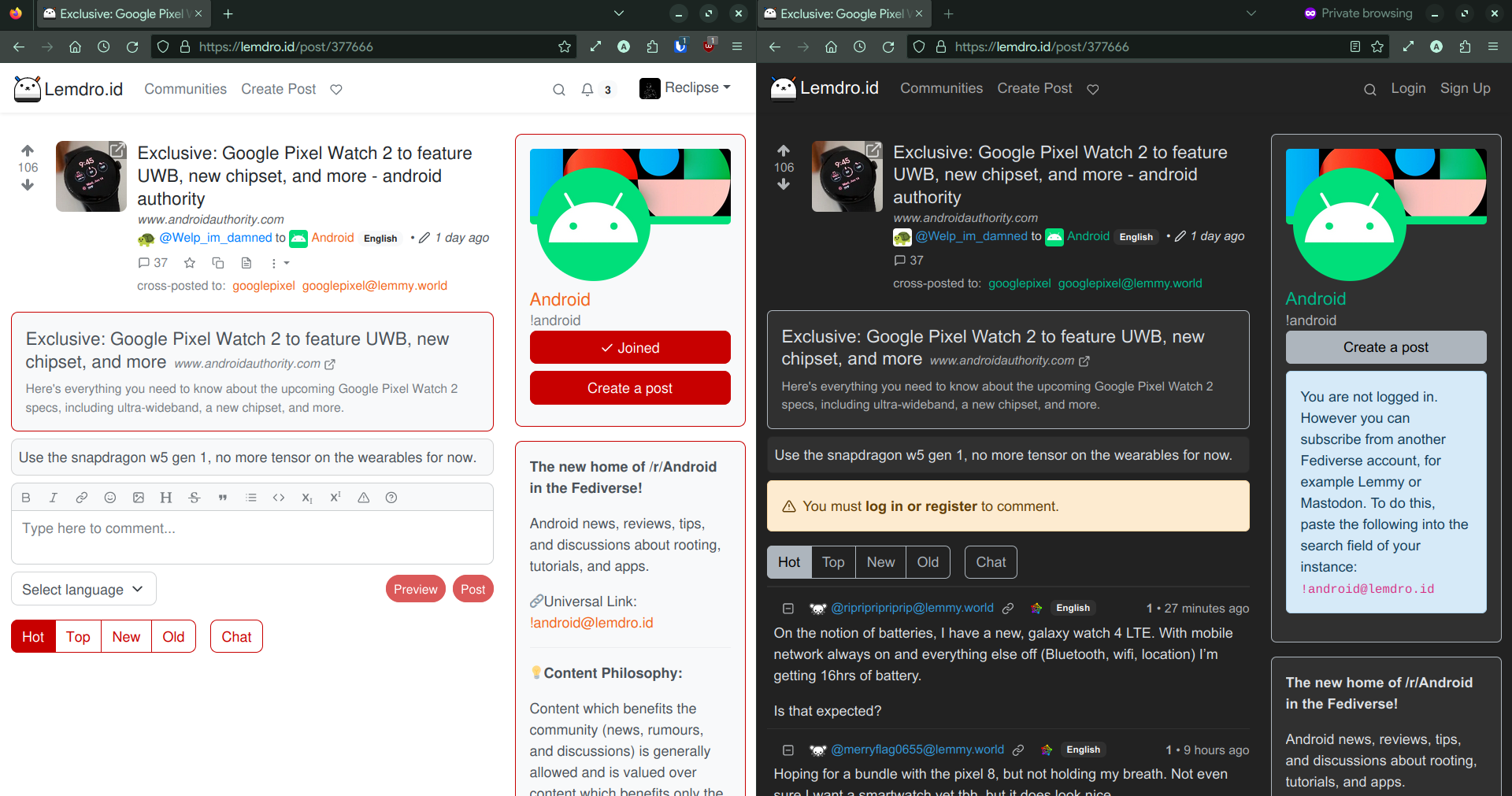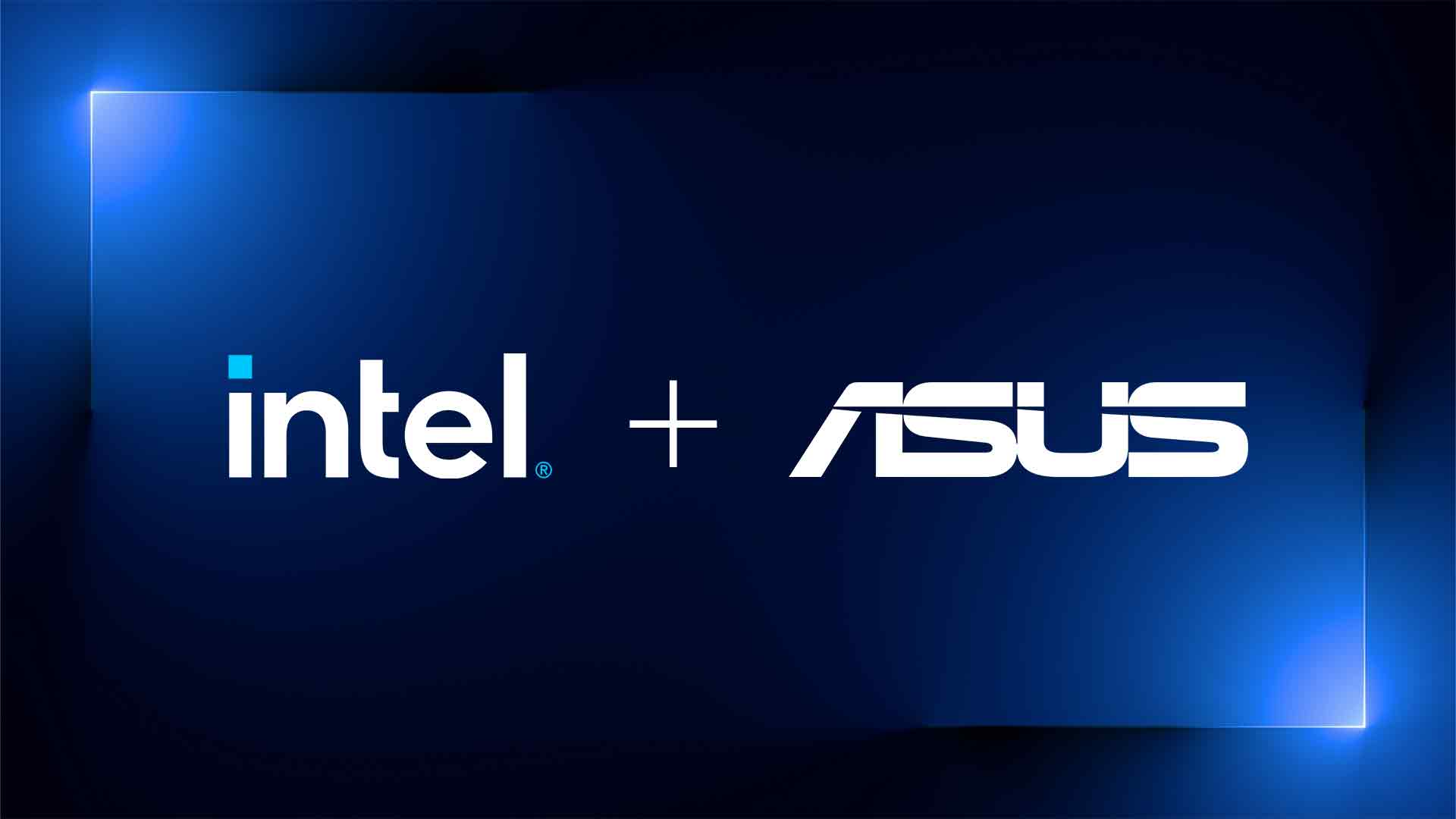 reclipse
Now
•
100%
reclipse
Now
•
100%
Saw a lot of posts on this topic, but this is the first time I am learning the drivers in question are Beta drivers.
 reclipse
Now
•
100%
reclipse
Now
•
100%
Better than 3% for sure.
 reclipse
Now
•
100%
reclipse
Now
•
100%
It doesn't help sadly. I have tried different browsers, different apps. Same problem in all cases.
 reclipse
Now
•
100%
reclipse
Now
•
100%
Replying to this from notification as this comment doesn't load for me when viewed from the post.
 reclipse
Now
•
100%
reclipse
Now
•
100%
Most comments are not showing up in my feed. Not sure where to ask for help.

 reclipse
Now
•
100%
reclipse
Now
•
100%
What are they protesting?
 reclipse
Now
•
100%
reclipse
Now
•
100%
Take my vote too.
 reclipse
Now
•
97%
reclipse
Now
•
97%
This is hilarious.
 www.theverge.com
www.theverge.com
## From the Article: Google’s Messages app might be getting cross-platform chat encryption in the future. The company is announcing adoption of an end-to-end encryption system known as Messaging Layer Security, or MLS. It’ll allow Google’s platform to connect and exchange messages with outside messaging apps that also support MLS (via 9to5Google). Want to message a group chat and have it securely and seamlessly appear on other people’s devices in their preferred chat apps? That’s the future European regulators are pushing for: to get tech companies to implement an end-to-end encryption system that allows users to securely message between platforms. Meaningful interoperability would require major companies to back the same standard, and MLS now seems to have one of the biggest ones on its side. Google also supports the carrier-backed end-to-end encrypted messaging system known as RCS. For a while, RCS didn’t have proper security for group chats, but Google is now releasing a version that does (which doesn’t use MLS). A big problem MLS may solve is better encryption for group messages. An Oxford paper published in 2017 pointed out security concerns in how some major messaging apps, including WhatsApp, Facebook Messenger, and Google Allo (RIP), could have group messages intercepted if just one member is compromised. So researchers sketched up an “Asynchronous Ratcheting Tree” that makes end-to-end group messages even more secure, and MLS was built with that idea in mind. The MLS protocol is developed by a standards organization called the Internet Engineering Task Force (IETF). The body just approved publication of MLS specification (RFC 9420) in March and has previously tested draft versions in Webex and RingCentral chats. Google is moving to place its MLS implementation open sourced into Android’s codebase but did not say when this would happen. It also did not specify how or if RCS messages, which Google has outwardly championed for more than a year, will work with the MLS-based encryption. Google continues to shame Apple for not supporting RCS, which is now available to more than 800 million Android users. It remains to be seen if other tech companies will “get the message” with MLS.
 reclipse
Now
•
100%
reclipse
Now
•
100%
Well it's the SUN!
 reclipse
Now
•
85%
reclipse
Now
•
85%
No lol
 reclipse
Now
•
100%
reclipse
Now
•
100%
You don't
 reclipse
Now
•
50%
reclipse
Now
•
50%
I get it. You guys are just trolling.
 reclipse
Now
•
100%
reclipse
Now
•
100%
I have neither.
 reclipse
Now
•
100%
reclipse
Now
•
100%
If I had to go to Europe or Japan, how am I supposed to accomplish that?
 reclipse
Now
•
66%
reclipse
Now
•
66%
Is it even possible to give up flying?
 reclipse
Now
•
100%
reclipse
Now
•
100%
And I love it
 reclipse
Now
•
100%
reclipse
Now
•
100%
I will upvote you...
 reclipse
Now
•
100%
reclipse
Now
•
100%
500 Rupees (about 6$) for 40mbps fibre connection.
 reclipse
Now
•
100%
reclipse
Now
•
100%
So that you will click on the article even though you are not using Mac and iOS.
 reclipse
Now
•
91%
reclipse
Now
•
91%
This is not reddit.
 arstechnica.com
arstechnica.com
cross-posted from: https://lemdro.id/post/104472 > > The WSJ reported, "For many years, telecom companies have known about the lead-covered cables and the potential risks of exposure to their workers, according to documents and interviews with former employees. They were also aware that lead was potentially leaching into the environment, but haven't meaningfully acted on potential health risks to the surrounding communities or made efforts to monitor the cables." > > > The WSJ quoted former cable splicer James Winn, who worked for several Bell system companies for 45 years, as saying the companies "knew the risks, but they didn't want to do a lot to mitigate it." > "Company testing in the 1980s found that [Winn] had high levels of lead in his blood, but his manager told him to go back to working with lead shortly after, he said," the WSJ wrote. > Another WSJ article on the topic that came out today profiled former workers who have illnesses that could have been caused by lead exposure. "Some of the workers have neurological disorders, kidney ailments, gastrointestinal issues and cardiovascular problems, illnesses that can be linked to lead exposure," the WSJ wrote. "There's no way to determine what triggered specific ailments. Doctors say no amount of lead is safe." > According to the article, "AT&T dismissed 'anecdotal, non-evidence-based linkages to individuals' health symptoms,' saying those symptoms 'could be associated with a vast number of potential causes.' Verizon said it has 'a robust safety and health program to provide training, materials and resources,' and that workers can get lead testing at any time at no cost." > > > AT&T posted a statement on its website calling the WSJ's testing methodologies "flawed." The company also said it "manage[s] legacy lead-clad cables in compliance with applicable laws and regulations" and follows best practices "based on established science."
 arstechnica.com
arstechnica.com
> The WSJ reported, "For many years, telecom companies have known about the lead-covered cables and the potential risks of exposure to their workers, according to documents and interviews with former employees. They were also aware that lead was potentially leaching into the environment, but haven't meaningfully acted on potential health risks to the surrounding communities or made efforts to monitor the cables." > The WSJ quoted former cable splicer James Winn, who worked for several Bell system companies for 45 years, as saying the companies "knew the risks, but they didn't want to do a lot to mitigate it." "Company testing in the 1980s found that [Winn] had high levels of lead in his blood, but his manager told him to go back to working with lead shortly after, he said," the WSJ wrote. Another WSJ article on the topic that came out today profiled former workers who have illnesses that could have been caused by lead exposure. "Some of the workers have neurological disorders, kidney ailments, gastrointestinal issues and cardiovascular problems, illnesses that can be linked to lead exposure," the WSJ wrote. "There's no way to determine what triggered specific ailments. Doctors say no amount of lead is safe." According to the article, "AT&T dismissed 'anecdotal, non-evidence-based linkages to individuals' health symptoms,' saying those symptoms 'could be associated with a vast number of potential causes.' Verizon said it has 'a robust safety and health program to provide training, materials and resources,' and that workers can get lead testing at any time at no cost." > AT&T posted a statement on its website calling the WSJ's testing methodologies "flawed." The company also said it "manage[s] legacy lead-clad cables in compliance with applicable laws and regulations" and follows best practices "based on established science."
 www.androidcentral.com
www.androidcentral.com
- New Geekbench listings indicate that the Galaxy S23 FE will draw its power from a Snapdragon 8 Gen 1 in the U.S. and an Exynos 2200 chipset in other markets. - Samsung's Exynos 2200 SoC was previously criticized for poor energy efficiency compared to its Snapdragon counterpart, but the company may have addressed this concern. - The phone is expected to make its debut in the third quarter of this year as a cheaper version of Samsung's latest flagship series.
 Now
Now















